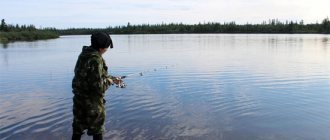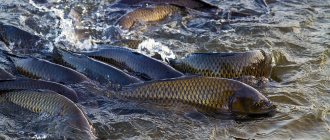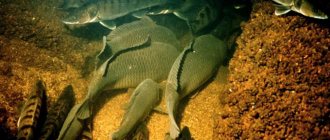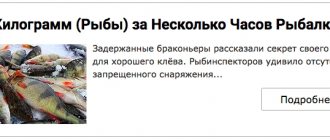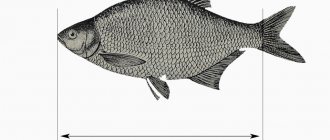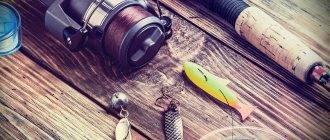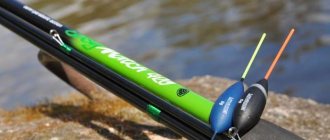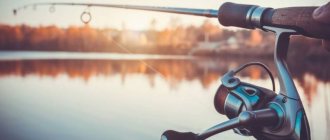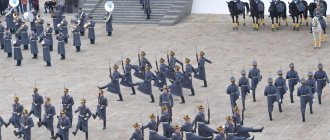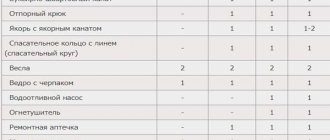The Federal Fisheries Agency initiated the adoption of new fishing rules, and regional authorities also came up with a similar initiative. Activists have been seeking this for the past six years, and deputies heard them by adopting a new Fishing Law on December 12, 2021 and new fishing rules from 2021. The law for fishermen is being discussed today by athletes and amateurs, and there is a lot to talk about, given the presence of fundamental changes in it.
What will change in the fishing rules
We would like to immediately warn fishermen who are concerned about new fines and fishing rules that the “Law on Recreational Fishing,” which entered into force on December 12, 2021, is now in effect on a limited basis.
Free legal consultation on fishing law>>
Fishermen will be able to fully experience the innovations on January 1, 2021, when all points of this bill come into effect. Until then, fishing enthusiasts must adhere to the provisions of Federal Law No. 166 of December 20, 2004, with some exceptions.
- In 2021, the state took control over the issuance of fishing permits for amateurs, which will increase control of recreational fishing. You can obtain such permission from the regional department of Rosrybolovst and other authorized bodies.
- Starting from 2021, fishing under bridges, on dams and near other hydraulic structures, in places where fish are reared industrially, is prohibited.
- Amateur and sport fishing, according to the new amendments, will be carried out exclusively on a free basis.
- According to the provisions of the new law, the concept of a fishing area is abolished, which will be replaced by fishing areas. Owners of paid ponds will now be forced to renew their contracts.
As for Federal Law No. 166 “On Fisheries and the Conservation of Aquatic Biological Resources”, according to which fishing enthusiasts will live until the entry into force of the new law, this concerns, first of all, fishing standards. According to previously established rules, the catch rate is 5 kg, although regional authorities themselves decide this issue, in accordance with the characteristics of the region.
From 2021 The five-kilogram limit will remain mainly in the center; in Altai up to 10 kg can be caught at a time, in the Khanty-Mansiysk Okrug - up to 30 kg, and in Chukotka even more.
Perhaps this is due to the popularization of the eastern regions and attracting tourists from other regions of Russia. When talking about the daily catch rate, it is also worth taking into account local characteristics, and there are regions where fishing is carried out not for entertainment, but to provide adequate nutrition. Thus, local residents in some areas of the Far North, in the Murmansk and Arkhangelsk regions may not go fishing for months due to weather conditions. With the onset of a favorable season, fishermen can immediately catch up to a hundred or more kilograms of fish to provide themselves with food for the winter. In this case, there are no restrictions on the amount of catch, although restrictions apply here too. For example, you cannot catch more than 100 kg per day of pollock, haddock, catfish, herring, flounder and other inhabitants of the Barents Sea, while the maximum amount of fish caught per day in the White Sea is limited to 50 kilograms.
What prohibitions does the new fishing law include?
As for the innovations that await fishermen at the beginning of 2020, then, unlike the old law, the weight of the fish caught, its type and size will be taken into account. New fines also cause anxiety for fishing enthusiasts, and they have increased tenfold. But after a few months you can fish for free, with the exception of certain bodies of water, which include:
- reservoirs intended for the artificial cultivation of aquatic organisms, and this includes both river and sea water plantations.
- reservoirs used for agricultural land reclamation.
- ponds and flooded quarries used for commercial fisheries.
The main news for connoisseurs of amateur and sport fishing is that, starting from 2021, you can fish in Russia with a spinning rod or donkey in any body of water, provided that the deadlines are met.
Fees for fishing are no longer charged de jure, but it will be possible to talk about a complete transition to free fishing only after the 2020 meeting. Before the law was adopted, approximately 90% of Russian water bodies were paid.
Good news! If the weight of the caught fish is more than the maximum permitted weight of the catch, according to the new rules it does not need to be released into the reservoir, and there is no fine for this.
Current prohibitions and restrictions
The simplest, but not obvious to everyone, is a ban on fishing in closed areas. In particular, if a civilian rents a piece of land from the state with an existing reservoir or builds his own pond, and then stocks it with fish, then such a person has the right to decide for himself whether to prohibit fishing. This is private territory, so free fishing and many rules “do not apply” there. In addition to this, there are other objects that imply both being on them and any attempts to catch fish there.
Such objects include:
- Industrial reservoirs of fish factories.
- Lakes, etc., under the protection of environmentalists.
- Any cleaning and cooling pools of enterprises.
- Reservoirs located on the territory of the Ministry of Defense and other government agencies.
Also among the conditional objects that imply a logical prohibition is fishing in water bodies contaminated with something. For example, you can take a pond located near hazardous waste sites or next to a landfill. There may not be good fish there, but some of the fauna still survives in environmentally unfavorable conditions. However, both these nuances and official fishing bans were in effect in the past. The new fishing rules did not add additional clauses to such prohibitions.
Attention! Separately, it is worth considering the situation with the temporary ban on fishing. This applies to the spawning periods of individual species. Moreover, there cannot be a single document at the federal level, because In different regions, spawning occurs in its own periods, which tend to shift depending on the weather.
Regarding fishing during spawning, there are clear instructions and penalties. In particular, fishing in a prohibited area using unacceptable methods during the spawning season can cost a fine of 300 thousand. In addition, this type of fishing on a large scale implies the possibility of imprisonment as a punishment. With other facts of illegal fishing, everything is a little simpler.
Prohibited fishing gear
The fewest changes relate to the section of prohibited gear. This only applies to the ban on the sale of gill nets, which will be withdrawn from retail chains in 2021. The only exceptions are the regions of Siberia and the Far East, and then only under certain conditions. The owner of the net must mark the tackle with his surname and initials, the net must be numbered, and fishing is permitted during a certain season. Other restrictions remain the same, and while fishing it is prohibited to use:
- dynamite, other explosives and chemicals
- forts
- various piercing objects
- spinning rods and other gear with more than 10 hooks
- electrical devices - shockers and fishing rods
- networks, nonsense and all kinds of traps
- firearms and pneumatics
According to the innovations that are already in effect in 2021, new rules for underwater fishing will come into force, and in crowded places it is now strictly prohibited. Underwater fishing gear is prohibited from being used on the surface, scuba gear and other breathing devices are prohibited, and the same applies to the ban on the use of electronic devices used to detect fish.
What restrictions are set for fishermen?
You can learn more about the prohibitions for fishermen from the new law No. 475.
In accordance with this regulatory legal act, you can fish without any restrictions and without paying a fee, if you do it in waters for which no special fishing license has been established. mode of use.
But even here, fishermen are affected by legal restrictions.
Article 6 of the Law establishes that amateur fishing may be prohibited or limited within the following special zones:
- on military installations that are located on lands used for defense and security purposes;
- at sites with specially protected status;
- at other sites where access to ordinary citizens is limited.
In the VO, where there are pond (commercial) aquacultures, recreational fishing is prohibited. When an object is owned by a separate individual. or legal face, then these points need to be coordinated with each of them in a separate order.
Please note! Article 7 of the law defines a number of additional restrictions:
- for the use of chemicals and explosives, including means aimed at catching using electricity;
- all net-type weapons are under a direct ban (the only exception is in the Far East, Siberia and the North, however, there are bans here too in certain periods);
- You cannot catch fish underwater:
- in places intended for recreation of citizens;
- using scuba gear and devices aimed at detecting mass accumulations of fish;
- using surface-based tools used to support underwater production;
- when competitions are held, the established daily catch rate does not apply (such events are held on an official basis and are notified in advance);
- A separate record of net-type fishing gear is maintained. They are marked and indicated with a number, characteristics are described and who the owner is recorded. In Siberia, the Far East and the North, the use of gill nets is practiced, but this is not prohibited here.
All current restrictions are regulated by a separate body of federal significance - Rosrybolovstvo:
- bans on fishing are established in certain areas, it is prohibited to catch fish of a specific species;
- the fish caught must be of a certain size and weight;
- requirements are put forward for the design, type, size, number of means used in fishing, as well as regarding the methods used;
- periods are established when fishing is prohibited or permitted;
- it is determined which vessels, of what size and in what quantity can be used for fishing purposes. The permissible volume of catch is approved, which should be per individual (fisherman) or one vessel (used in fishing);
- other restrictions.
Regarding the places that are used for fishing in the Russian Federation, they are established separately in each region.
Attention! Generally prohibited places where fishing is strictly prohibited include:
- in the immediate vicinity of bridges, dams, locks, and other similar structures on the water, as well as near fish. factories (cages) involved in fishing;
- on VOs classified as spawning farms;
- in the area of the fairway with floating. funds;
- in areas classified as nature reserves;
- at fish hatchery facilities;
- on the territory of fish and pond farms;
- in areas of spawning grounds during the spawning period;
- within fish objects. factories when “young fish” are released.
There is a separate list of tools that are prohibited from being used for fishing.
You can't fish:
- networks, no matter what type or type they belong to;
- traps, regardless of design (except for crayfish traps);
- passive fishing gear (for example, “throws, pokes, etc.) on river objects that are places where salmon species live;
- pneumatic weapons (with the exception of devices used for underwater hunting);
- spinning rods (fishing rods), regardless of the design features and the fishing system used, if the number of hooks exceeds 10 pieces (the norm for one person);
- bottom seines and trawls;
- self-catching hook devices;
- net tools (for example, seines, drills, capes, scarves, etc.);
- using “scoops” and lifts, the dimensions of which exceed one meter by meter and with a cell of more than a centimeter;
- samovniks and trap devices;
- with the use of spears and other piercing means.
Remember! There is a whole list of methods that cannot be used for fishing:
- the use of lighting and undercutting is prohibited;
- You can’t kill fish;
- the use of trolling (under sail or with a motor) if more than two baits are used;
- creation of barriers at the watershed that prevent the movement of fish and lead to their mass collection in one place;
- the use of lanyards and circles, if the number of hooks used by one person exceeds 10 pieces;
- the use of crayfish traps if there are more than three devices per person with a cell size of more than 2.2 cm and a diameter of more than 80 cm;
- the use of straps if the device used by one person has more than 10 hooks;
- catching crayfish by diving and wading;
- catch fishing;
- using combines and pulp traps;
- method of draining a reservoir;
- installation of a hut on ice;
- using floating vehicles (vessels) that have not been properly registered and do not have identification marks on board;
- using a firearm, a stun gun;
- use fishing rods that shock with electricity;
- using floating funds during the spawning period of fish;
- underwater fishing using scuba gear.
Watch the video. Fishing rules for 2021. How not to be left without pants after fishing:
What are the penalties for violating fishing rules?
This point should be read especially carefully, especially for those who are not used to adhering to the established rules. The new fines are regulated by the Decree of the Russian government of November 3, 2021, which came into force on November 17. Potential violators are in for an unpleasant surprise - fines have increased several times. First of all, this concerns illegal fishing during the prohibited period and fishing with prohibited gear. For each fish caught illegally, you will have to pay a different fine amount.
| Type of fish | Amount of fine before the adoption of the new law, rub. | New fines, rub |
| beluga | 12 500 | 206 625 |
| sturgeon | 8 350 | 136 024 |
| sterlet | 420 | 4 572 |
| Beluga caviar, per 1 kg | 8 350 | 82 200 |
| caviar of other sturgeon, per 1 kg | 5 000 | 54 910 |
Among the violations that are punishable by a fine, according to the new rules, is fishing without a permit, for which a fine of 4 thousand rubles is provided, and if a fish listed in the Red Book is caught on the hook, the fine increases automatically to 200 thousand rubles. Much more serious punishment awaits violators who use prohibited fishing gear and choose the spawning season or protected area for this purpose - this is punishable by a fine of 500 thousand rubles or imprisonment for up to two years.
To briefly summarize, we can say that the new fishing law already has legal force, but until 2021 you still will not be able to get free access to a paid reservoir. It is also worth recalling the need to obtain a permit for recreational fishing, the absence of which is punishable by a serious fine. Do not use prohibited gear, and fish exclusively during the allotted period, since the amount of fines under the new rules has increased tenfold for some types of fish.
